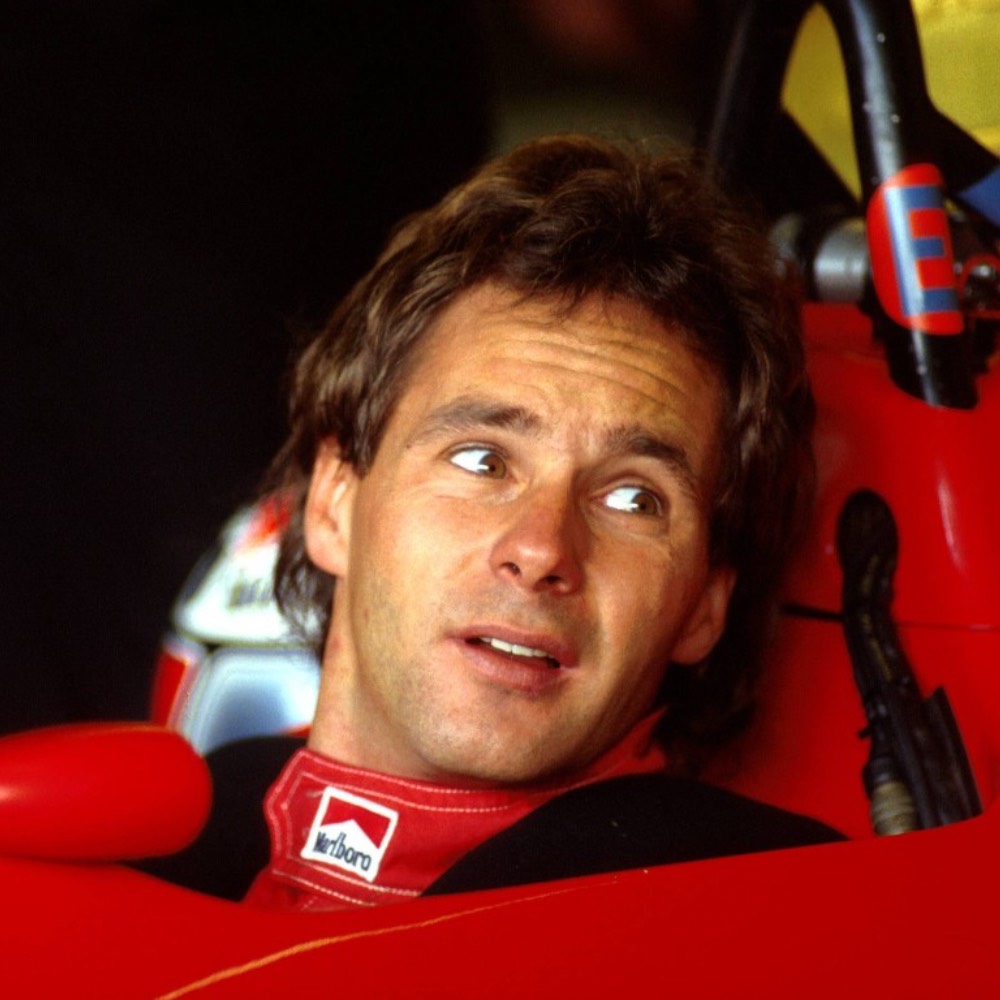
Gerhard Berger
Career Statistics
Biography
Gerhard Berger (born 27 August 1959) is an Austrian former racing driver who competed in Formula One from 1984 to 1997, winning 10 Grands Prix and finishing third in the World Championship in both 1988 and 1994. Born in Wörgl, Tyrol, Austria, Berger came from a modest background and financed his early racing career through his family's truck business. He progressed through Formula Ford and Formula 3 before reaching Formula One, demonstrating the determination that would characterize his entire career. Berger made his Formula One debut with the ATS team in 1984, showing enough promise to secure a move to Arrows for 1985.
His breakthrough came in 1986 when he joined the Benetton team and immediately delivered impressive performances, including victory at the Mexican Grand Prix at the Autódromo Hermanos Rodríguez. This maiden victory, achieved in only his third season and showcasing his attacking driving style, earned him a coveted contract with Scuderia Ferrari for 1987. At Ferrari from 1987 to 1989, Berger partnered Michele Alboreto and established himself among Formula One's elite. He won the 1987 Japanese Grand Prix at Suzuka and the Australian Grand Prix at Adelaide, demonstrating consistency at Ferrari's traditional late-season circuits.
In 1988, during McLaren's period of absolute dominance with their Honda-powered MP4/4, Berger achieved the seemingly impossible by winning the Italian Grand Prix at Monza, becoming the only non-McLaren driver to win a race that season. The emotional victory at Ferrari's home circuit, achieved despite McLaren winning 15 of 16 races, remains one of the most celebrated moments in Scuderia history. However, 1989 brought both triumph and near-tragedy for Berger. He won the Portuguese Grand Prix but suffered a horrific accident during the San Marino Grand Prix at Imola when his Ferrari crashed at Tamburello corner and burst into flames.
Trapped in the burning wreckage for approximately 20 seconds before marshals could extract him, Berger suffered burns to his hands but miraculously survived with relatively minor injuries. He returned to racing just three races later, demonstrating extraordinary courage and determination. The accident, occurring at the same corner where Ayrton Senna would later lose his life in 1994, marked a turning point in Berger's career. For 1990, Berger made the high-profile move to McLaren, replacing Alain Prost as teammate to Ayrton Senna.
This partnership, which lasted through 1992, became one of Formula One's most memorable teammate relationships. Despite the challenge of competing against Senna, widely regarded as the fastest driver of his generation, Berger performed admirably, winning three races (the 1990 Canadian and Japanese Grands Prix, and the 1991 Japanese Grand Prix) and scoring four pole positions. More significantly, Berger became one of Senna's closest friends in the paddock, with their relationship characterized by mutual respect and Berger's famous practical jokes. The Austrian's candid, take-it-or-leave-it communication style earned Senna's respect, and Berger was one of the few people who could joke with the intense Brazilian.
Their friendship would make Senna's death at Imola in 1994 particularly devastating for Berger. Before the 1992 Belgian Grand Prix, Berger announced he would return to Ferrari for 1993, persuaded by both Senna and his compatriot Niki Lauda. His second Ferrari stint from 1993 to 1995 saw him partner Jean Alesi in a popular driver lineup, though the team struggled to match the pace of Williams and later Benetton. Berger won the 1994 German Grand Prix at Hockenheim and showed flashes of his earlier form, finishing third in the 1994 World Championship, his joint-career-best result.
He remained Ferrari's most senior driver through a difficult period, providing valuable development feedback and maintaining morale. For his final two seasons, 1996-1997, Berger returned to Benetton (which had evolved significantly since his earlier stint). He continued to demonstrate his speed and racecraft, winning his final Grand Prix at the 1997 German Grand Prix at Hockenheim in a perfectly judged performance in tricky conditions. He retired at the end of 1997, having competed in 210 Grands Prix, scoring 10 victories, 12 pole positions, 21 fastest laps, and 48 podium finishes.
His 14-season career represented remarkable longevity at the highest level, and he remains Austria's most successful Formula One driver. After retiring from driving, Berger remained involved in motorsport, serving as competition director for the BMW Formula One team from 2000 to 2003, and later purchasing a 50% stake in Scuderia Toro Rosso. From 2017 to 2021, he served as Chairman of ITR, the promoter of the Deutsche Tourenwagen Masters (DTM) series, where he played a crucial role in the championship's development. Gerhard Berger is remembered as one of Formula One's most popular drivers, combining genuine speed with approachability, humor, and sportsmanship that earned universal respect throughout the paddock.